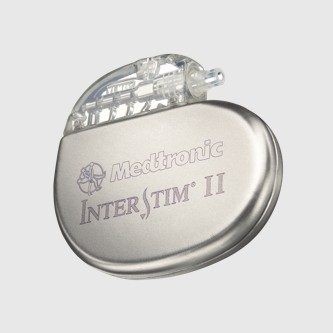Thank you for visiting our website. As of January 1, 2024, Center for Pelvic Health is now Williamson Health Urogynecology and Pelvic Health. To find more information about our practice, our transition and how to make an appointment with our team, please click here. Thank you, and we look forward to continuing to serve you for years to come.
Medtronic Bowel Control Care Pathway
There are many ways to manage bowel control problems. Remember, if conservative treatments don’t deliver the results you need, you have more options.
STEP 1: DIAGNOSIS
"What is happening to me?"
If you’re experiencing symptoms of bowel control problems, it’s time to meet with a bowel incontinence specialist. Your doctor may ask you to fill out a symptom diary to get a better idea of your daily experience and confirm your diagnosis.
SYMPTOMS OF CHRONIC FECAL INCONTINENCE (FI) INCLUDE:
- Frequent bowel accidents
- Inability to resist the urge to go
- Inability to feel when you need to go
- Planning activities around the bathroom
- Monitoring what and how much you eat
- Using pads and protective garments

STEP 2: LIFESTYLE CHANGES
"What should I try first?"
Conservative treatments can help some people, but may not work very well (or at all) for others. All of these are relatively simple behavioral changes that you may already be doing.
- Dietary modification: Changes may include adjusting fiber intake or eliminating troublesome foods.
- Bowel retraining: Also called biofeedback, this aims to improve bowel sensation, coordination, and strength.
- Medication: Anti-diarrheal medication may provide some relief.

STEP 3: ADVANCED THERAPIES
"What if conservative treatments don't work for me?"
If conservative treatments don’t deliver the results you want, you have more options.
MEDTRONIC BOWEL CONTROL THERAPY DELIVERED BY THE INTERSTIM™ SYSTEM
If you’re ready to try an advanced approach, Medtronic Bowel Control Therapy delivered by the InterStim™ system can help. It targets the nerves that control your bowel to help it function normally again.
- Try it during an evaluation
- Clinically proven to stop or greatly reduce bowel accidents
- Resources and support available

Implanting an InterStim™ system has risks similar to any surgical procedure, including swelling, bruising, bleeding, and infection. Talk with your doctor about ways to minimize these risks. Complications can occur with the evaluation, including movement of the wire, technical problems with the device, and some temporary pain. Your doctor or nurse will provide you with the information regarding how to operate the test device, and inform you of other precautions related to the evaluation and activity restrictions.
DEXTRANOMER AND SODIUM HYALURONATE
This gel is injected as an implant into the anal canal to thicken the tissues and improve symptoms of FI.
- Does not address bowel-brain communication
- May cause unpleasant side effects
OTHER SURGICAL OPTIONS
Several other surgical options are available, all of which bring their own unique set of risks.
- Anal sphincter repair
- Artificial sphincter
- Colostomy
- Antegrade colonic enema (ACE)


